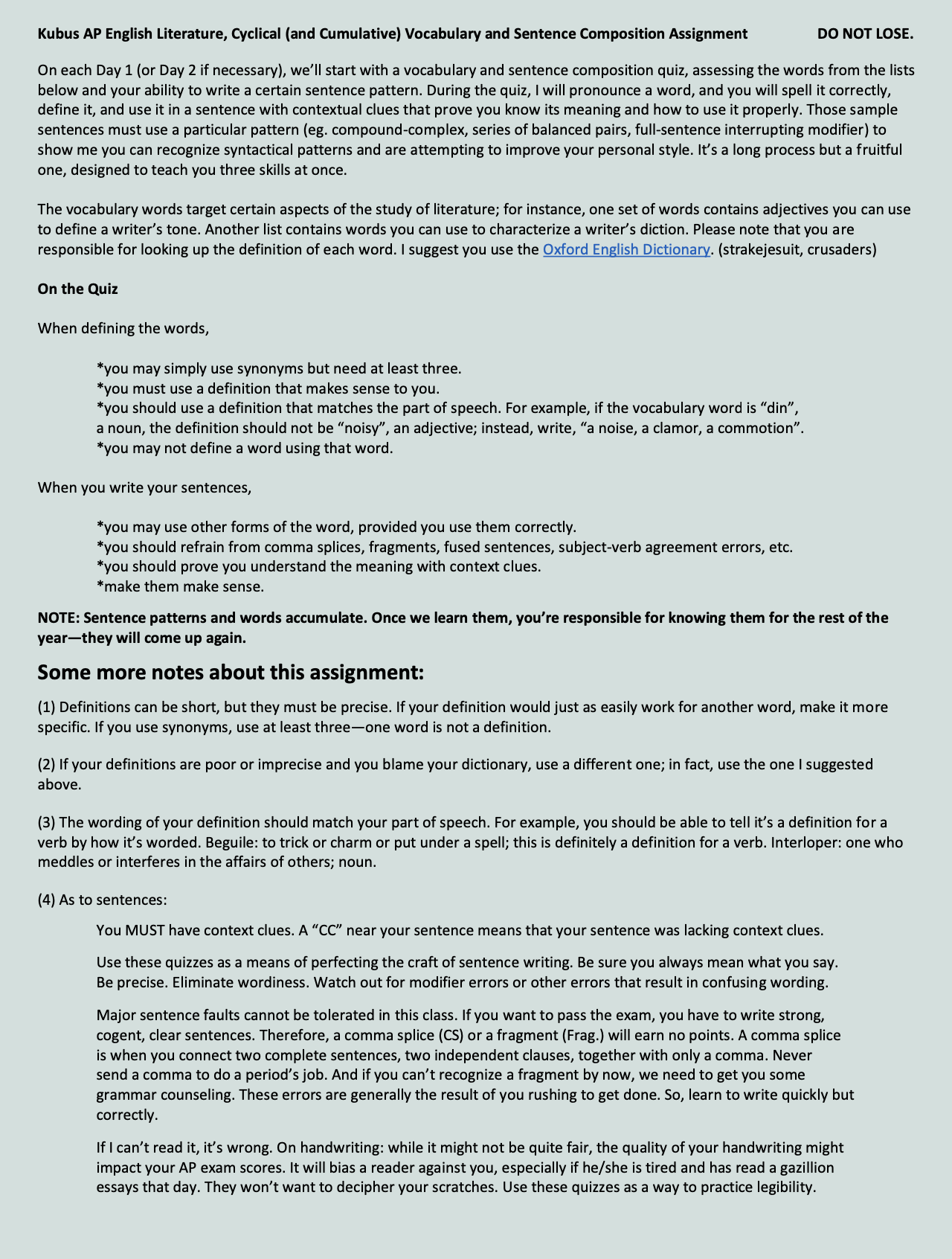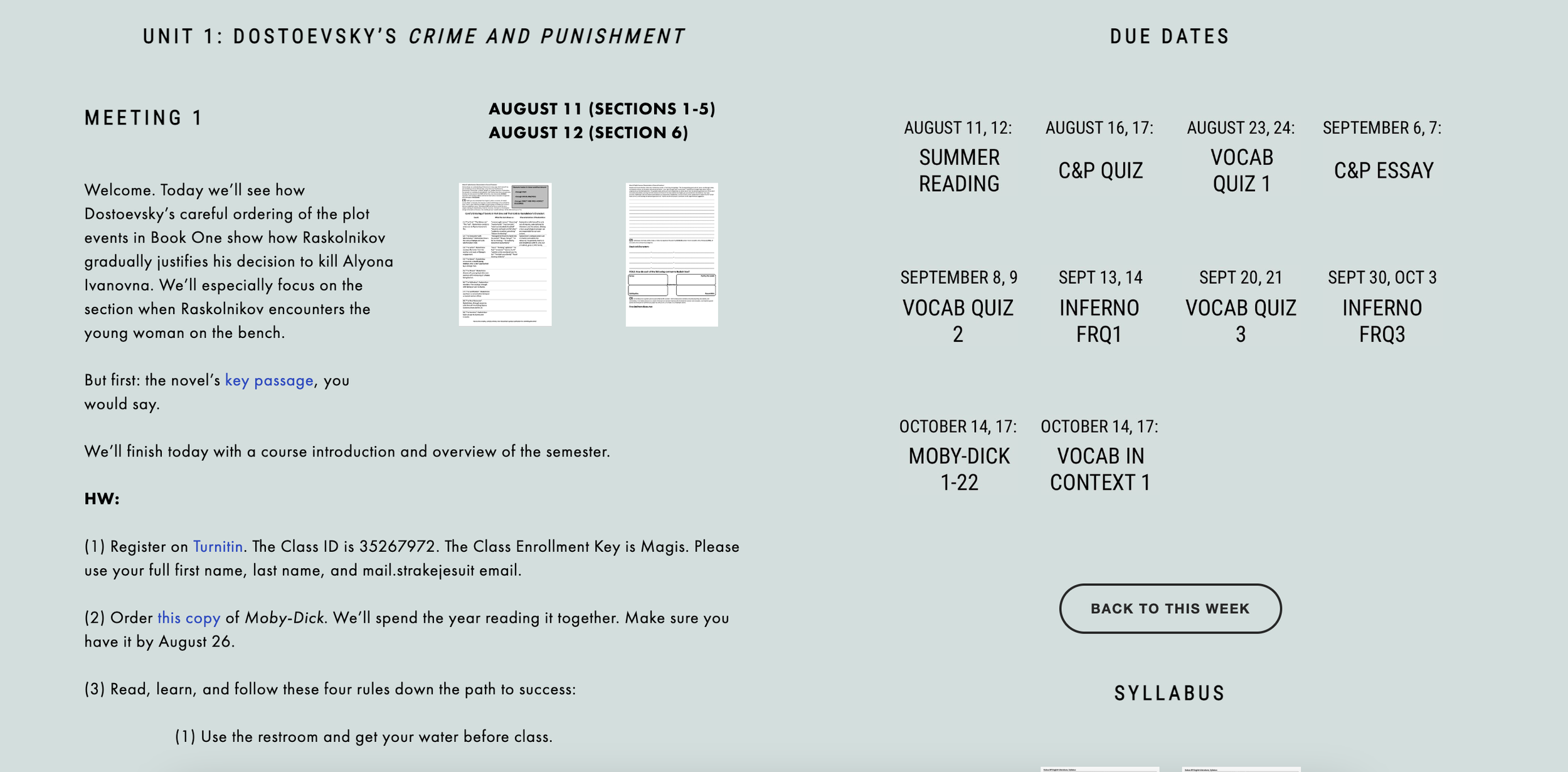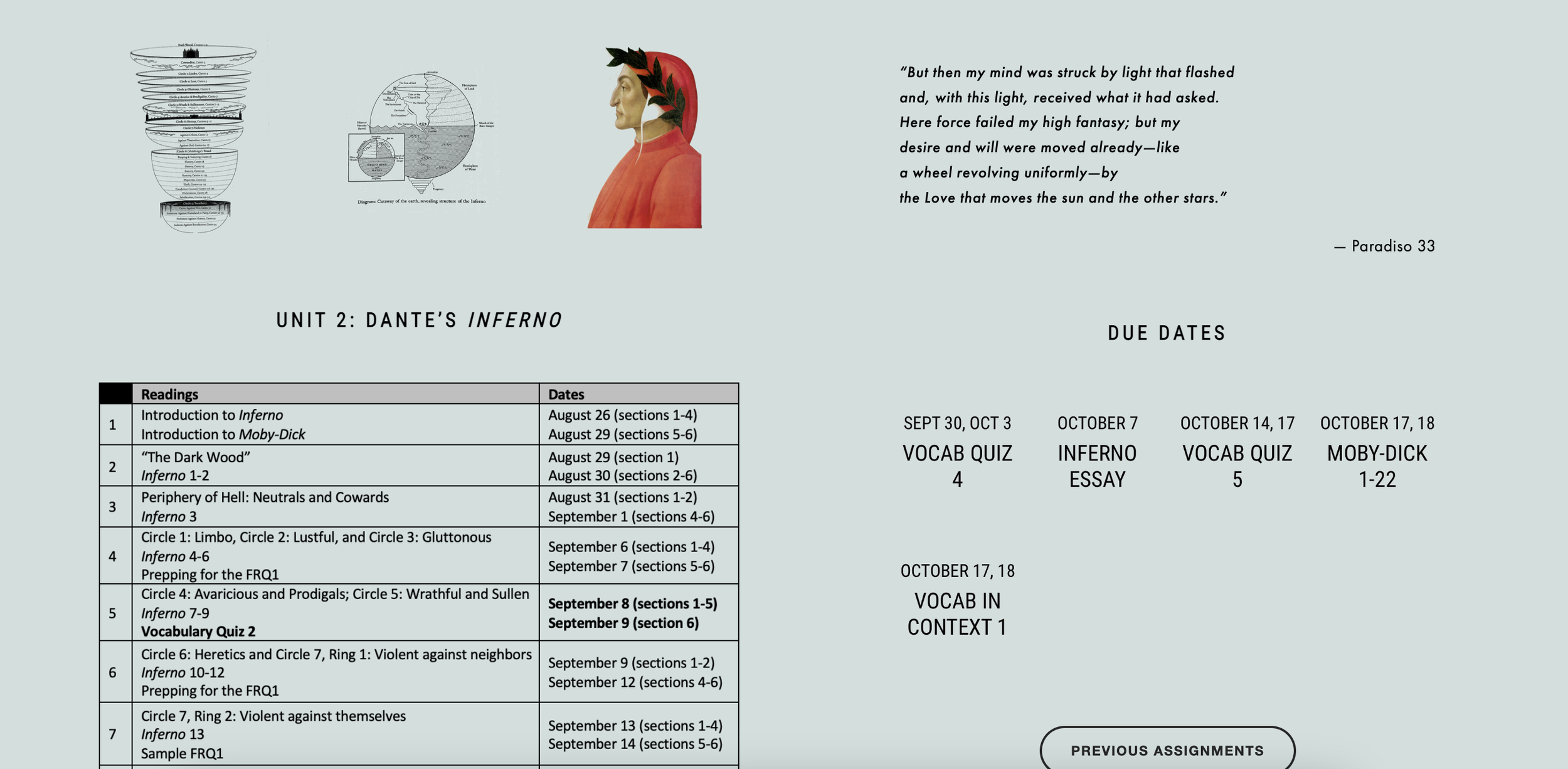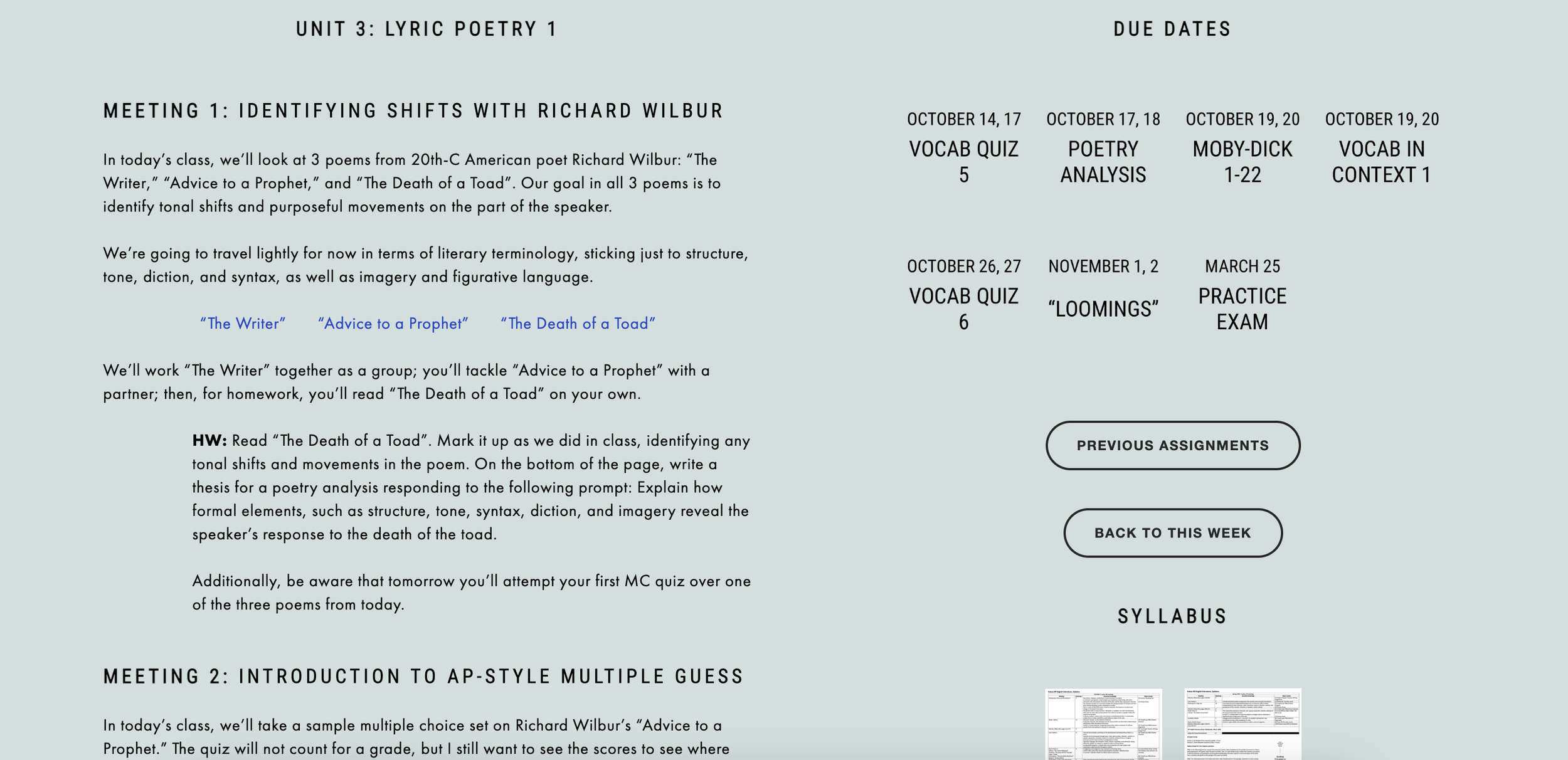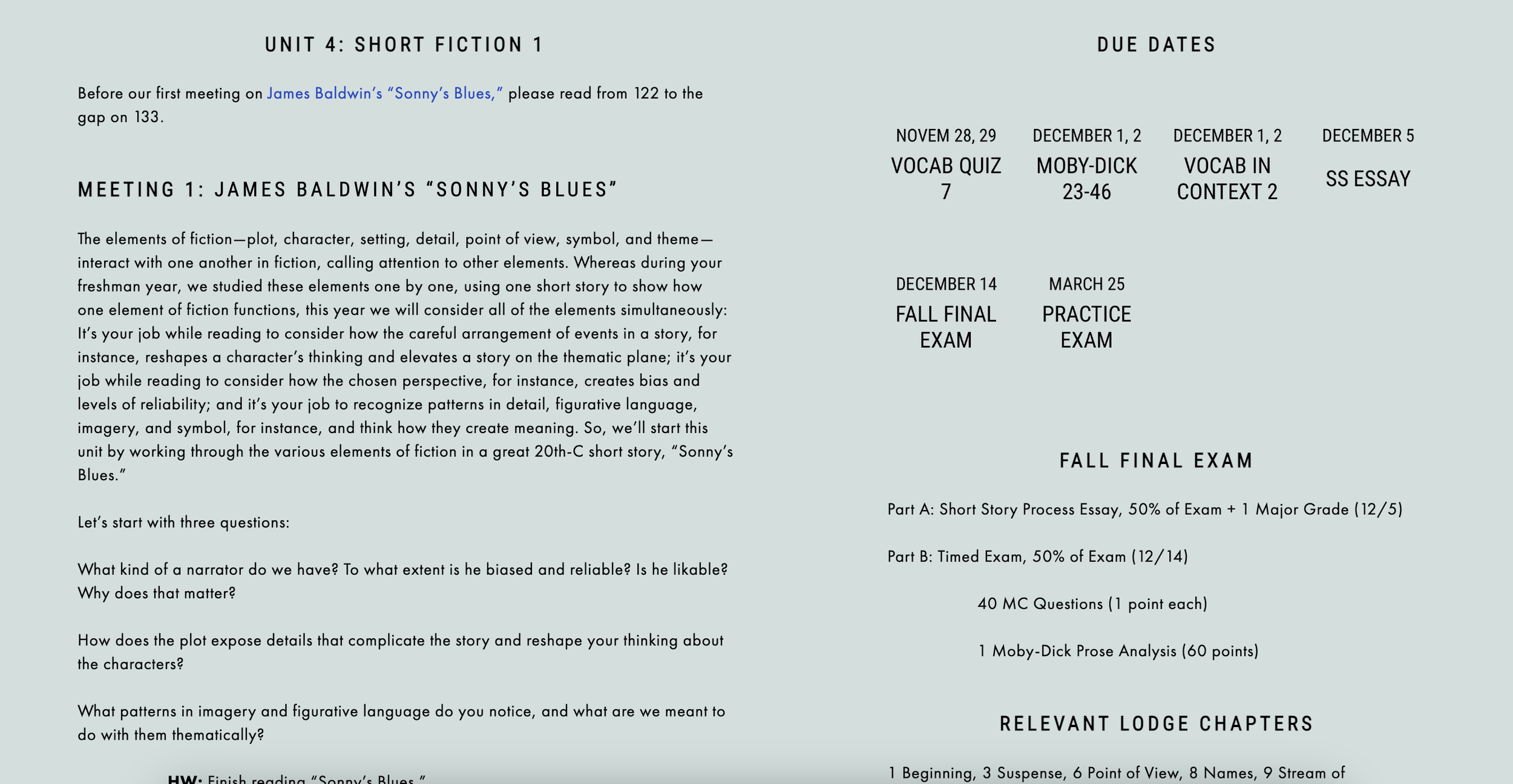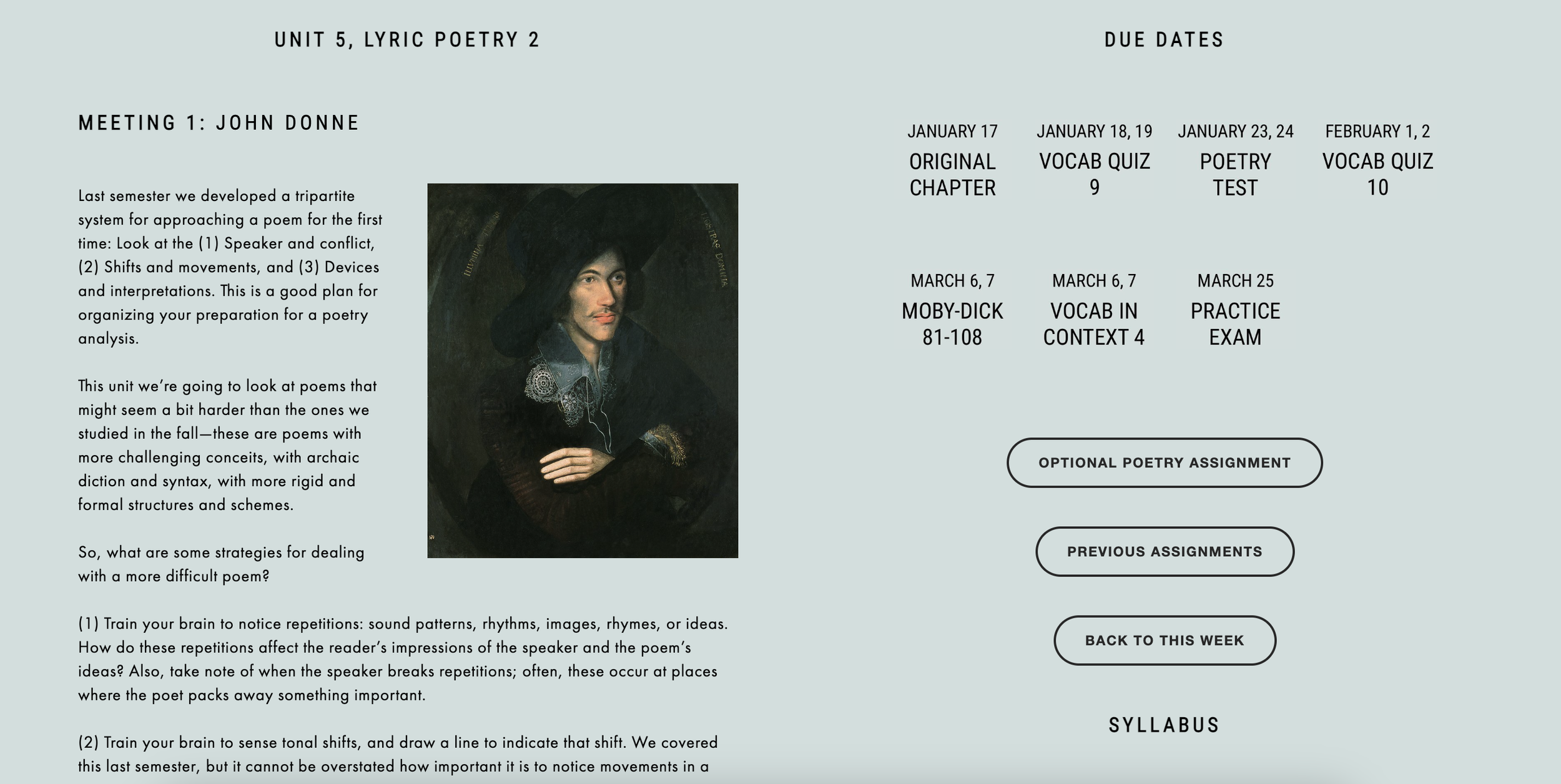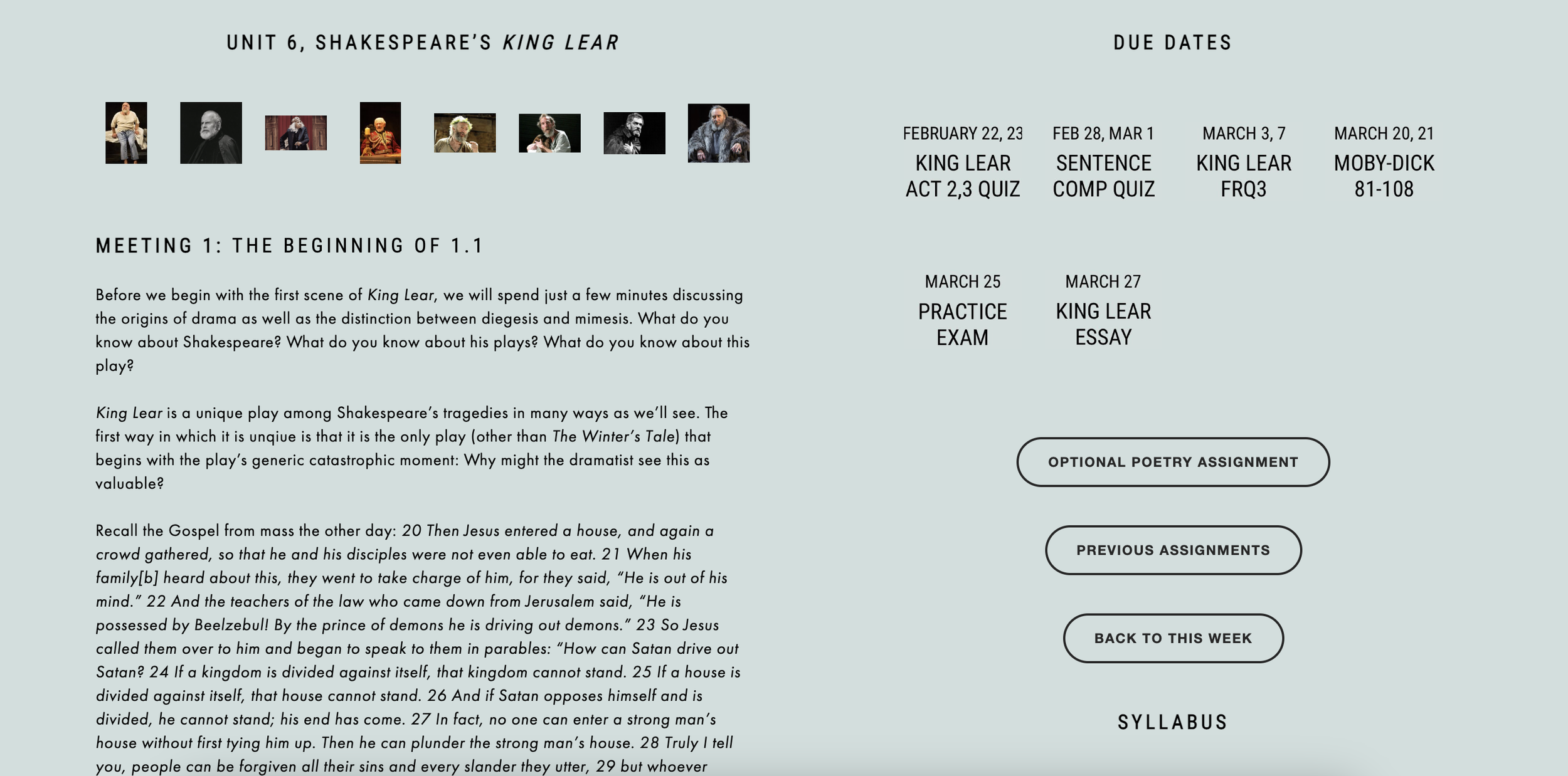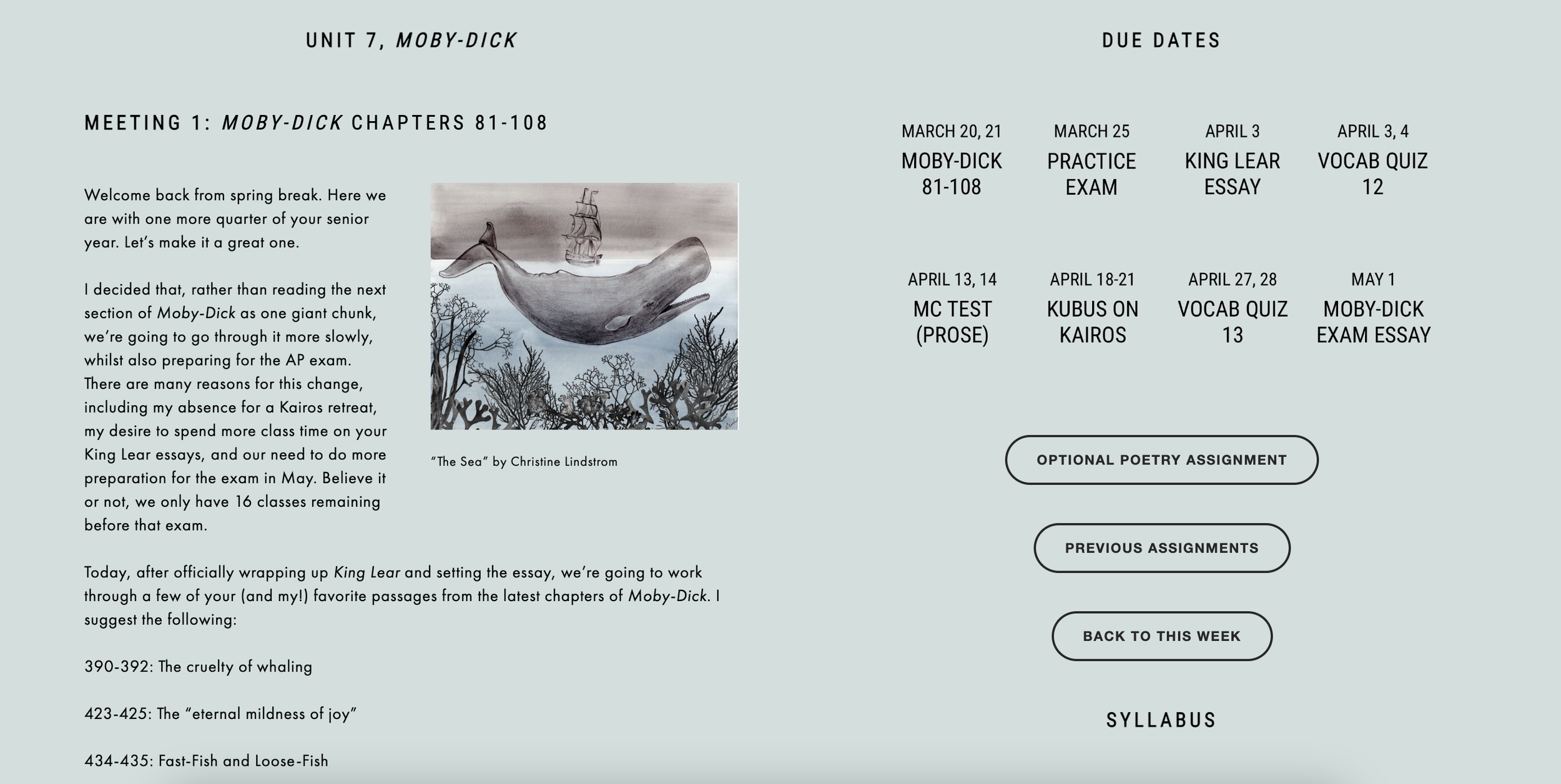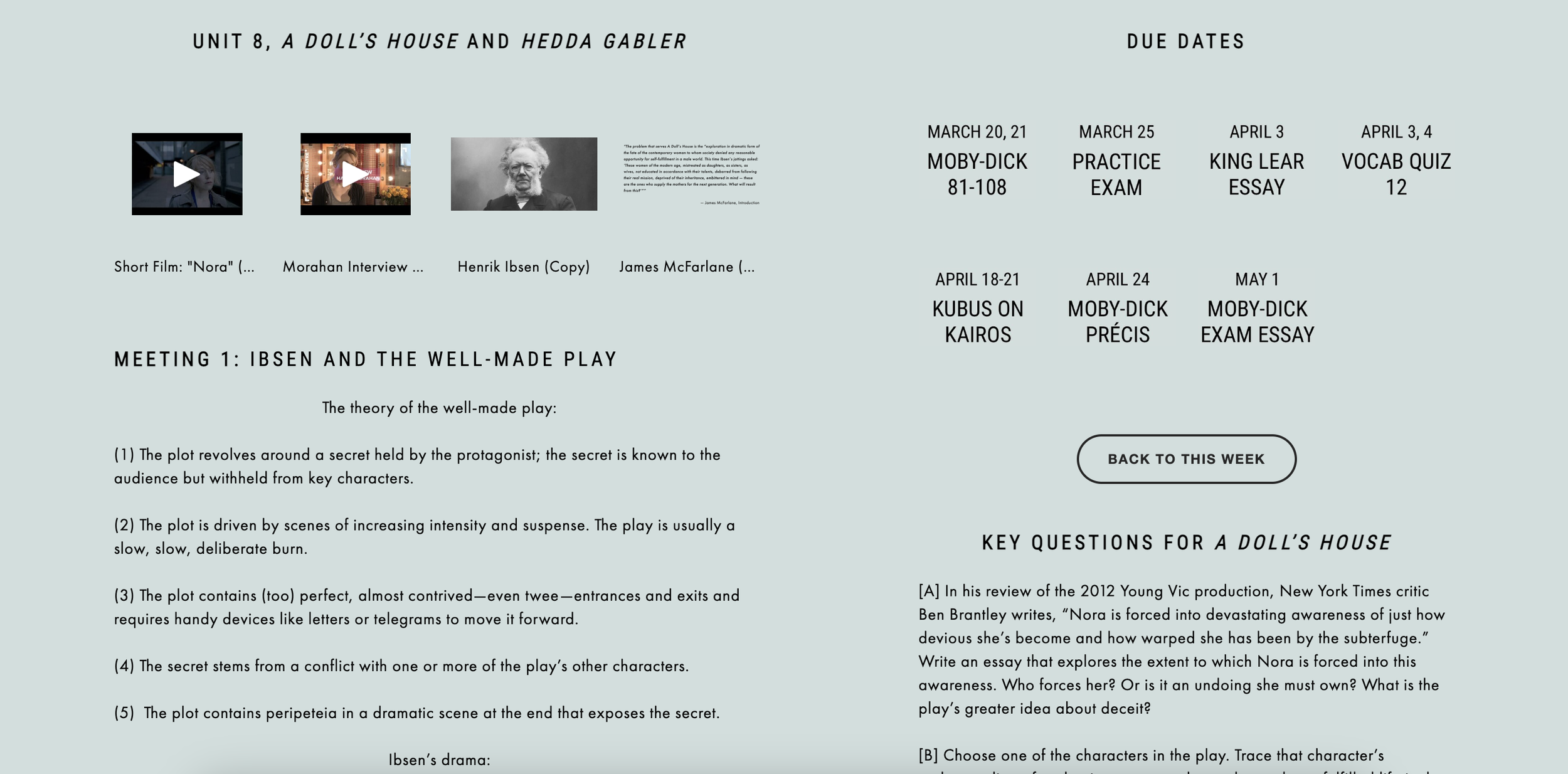unit 1: amor towles’ a gentleman in moscow
“I’ll tell you what is convenient,” he said after a moment. “To sleep until noon and have someone bring you your breakfast on a tray. To cancel an appointment at the very last minute. To keep a carriage waiting at the door of one party, so that on a moment’s notice it can whisk you away to another. To sidestep marriage in your youth and put off having children altogether. These are the greatest of conveniences, Anushka—and at one time, I had them all. But in the end, it has been the inconveniences that have mattered to me most.”
MEETING 1: literary constraint
Welcome. Today we’ll talk briefly about the nature of this course and how to do well, my expectations, my hopes for you. But first…
Counterintuitively, literary constraint opens doors for a writer. What’s literary constraint or constrained writing? Why do author’s use constraints? What are some examples of constrained writing? What are the constraints Towles puts on himself when he sits down to write A Gentleman in Moscow?
In this class, though, we never talk about literary form or technique out of the context of theme. That is to say, form always connects to a literary work’s larger implications, interpretations, and ideas. So, let’s use some of our time today to think about how the constraints of A Gentleman in Moscow amplify some of the novel’s themes.
Homework: (1) Familiarize yourself with the course website—this page, the Policies page, and the Writing Center. It’s up to you to know the resources you’ve available to you. Study these pages.
(2) Register on turnitin.com: Class ID: 44886857 Enrollment Password: magis
(3) Post your summer reading essay to turnitin.com by 8 PM on the night of your first class, either the 14th or the 15th.
(4) Think: What kinds of restraints were put on your self-selected novel? Brainstorm in your notebook. Be prepared to share tomorrow.
(5) Study: AGIM quiz next class.
MEETING 2: quiz / towles’s ideas 1
First, a quiz. Then we’ll begin with a review of last class. What kinds of constraints were put on your self-selected text? Do you see a thematic connection? I’ll ask you to share with a partner and then with the large group.
With the little time that remains, I’d like to back to A Gentleman in Moscow and consider how Towles develops three subjects in the novel: Bolshevism, Freedom, and Purpose. How does any writer of fiction develop an idea? Does he set out to do so? Does it just happen? What elements might we look for in order to discern theme?
If you were writing an essay about AGIM, what might your thesis be with respect to each of these three subjects? Here’s the handout.
Homework: Here’s a second handout with a few more of the novel’s ideas. Pick one of the quotes. Prove the quote like we did in class. Make an attempt at a thesis.
MEETING 3: towles’s ideas 2 / critiquing a novel
First: Group re-post.
From last class: Which quote did you choose? How did you go about proving the idea with evidence? Let’s move to the thesis handout and consider the components of a strong claim.
Next: Objectively—yes, objectively—we can find ways to critique literature. Today I’ll ask you to evaluate the novel in the following domains:
Plot: Are the novel’s final events a product of the novel’s previous events? Look back at the poem at the beginning of the novel. Does it hint at what would happen at the end? Or are there too many moments of deus ex machina?
Narrative Voice: Are there inconsistencies in the narrative voice that make reveals and twists make no sense?
Characterization: Are the characters flat for no reason? Do they all sound the same?
Tropes: Are the patterns that the novel borrows cliches?
What does the novel do well? What does the novel do really well?
Homework: Go back and re-read the novel’s longest and—in my opinion—most important chapter, “Antics, Antitheses, an Accident”. Note in the margin of your text the key episodes of the chapter. Why are they arranged in the way they are and kept in the same chapter? In other words, what does Towles want you to see about this chapter structurally? And, as always, connect that structural observation to the novel’s larger themes. Do you remember another chapter that works in a similar way? Share with us next time.
meeting 4: “antics, antitheses, an accident” / narrative voice
Today we’ll consider “Antics, Antitheses, an Accident” before moving to the narrative voice of A Gentleman in Moscow. As we’ll see this year, an author’s choice of narrator is the single most important decision he or she makes before writing their novel, and it’s one of the most important jobs of the student of literature to consider the narrative voice carefully, its characteristics, its quirks, its effects, its reliability, its bias, its point of view. Though we will spend the rest of today thinking about narrators, our short fiction unit and subsequent novel units will offer us more time to consider them in much greater detail.
Let’s begin by thinking about different types of narrators we’ve seen in the past and then the narrator in Towles’ novel. Is it always the same? Does the point of view ever shift? At what times? Why? How and why does Towles layer in a second narrative voice? What are the characteristics of that second narrative voice?
With whom does the narrator side in the novel? Is it always clear? Do you detect any unreliability? How so?
We’ll finally consider different types of narrative style used in Towles’ novel: direct, indirect, and (everybody’s favorite) free-indirect.
Homework: (1) Think: What kind of narrator did the author of your self-selected novel choose? Why is this narrator appropriate given the thematic nature of the book? Do you see any instances if free-indirect style? Brainstorm in your notebook. Be prepared to share tomorrow.
meeting 5: revising the summer draft 1
Today is our first day of writing instruction for the year. We’ll review the parts of the opening paragraph, using strong samples as models. Here’s the model essay’s thesis.
We’ll then explore the anatomy of an essay, using a structurally sound sample on Jane Austen’s novel Pride and Prejudice. In our dissection, we’ll find a strong opener, a rich thesis, a rock-solid structure, cogent thinking, good evidence, and a clear style. After, you’ll provide feedback on two sample body paragraphs, one on Crime and Punishment, one on Inferno.
Homework: The revision of your summer essay is due right after Labor Day weekend. It’s a universal deadline of 8am, September 3. Post your essay to turnitin.com. Bring a stapled and properly formatted paper copy of the essay with Works Cited page. You’ll submit the hard copy in class. The word count will be a range of 1200-2000. Should you finish before Labor Day weekend, you’re welcome, of course, to turn in the revision early, and I’ll gladly grade it over the long weekend.
meeting 6: revising the summer draft 2
At the beginning of today’s class, I’ll set the first vocabulary and sentence composition assignment. Here are samples of the first patterns. Remember that you’re to look up the definitions of each of the adjectives to define a writer’s tone.
After, you’ll provide feedback on two sample body paragraphs, one on Crime and Punishment, one on Inferno.
meeting 7: revising the summer draft 3
Opener and Closers / Drafting period
Homework: Read and annotate James Joyce’s short story “A Painful Case” in Dubliners, pages 88-97.
























